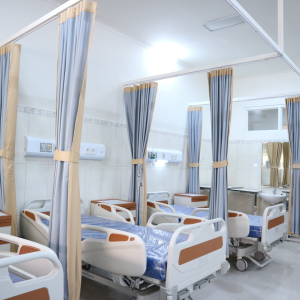When planning your finances, it’s important to consider the cost of medical treatment in Malaysia, whether at government or private hospitals. Medical expenses can be significant, particularly if you don’t have health insurance coverage.
Malaysia Government Hospital Fees: What Are the Expected Costs?
When discussing medical treatment costs in Malaysia, the initial focus often revolves around the financial burden that needs to be covered. Many assume there’s no need to worry about these expenses because government hospitals and clinics are believed to provide free treatment.
But is it true that treatment at Malaysia’s government hospitals comes at no cost?
While some treatments at government hospitals are indeed free or mostly covered by the government, not all are without cost. Certain treatments still require payments amounting to thousands of ringgit, despite significant government subsidies.
It’s important to note that these charges can vary depending on the patient’s health condition and any unforeseen complications that may arise during treatment.

Types of Treatment and Their Costs
| Treatment | Government Hospital Charges | Private Hospital Charges |
|---|---|---|
| Angiogram procedure | RM50-RM200 | RM15,000-RM20,000 |
| Bilateral knee replacement | RM10,000-RM35,000 | RM25,000-RM45,000 |
| Coronary artery graft bypass | RM4,000-RM5,000 | RM25,000-RM80,000 |
| Chemotherapy | RM200-RM300 per treatment | RM50-RM4,000 per cycle |
| Hip replacement | RM8,000-RM15,000 | RM24,000-RM55,000 |
| Spine surgery | RM15,000-RM36,000 | RM40,000-RM55,000 |
| Stroke treatment | RM4,000 and above | RM35,000-RM75,000 |
| Cataract surgery | RM100-RM500 | RM3,500-RM6,000 |
| Dengue | Free | RM1,000-RM3,000 |
| Kidney stone | RM3,000-RM10,000 (depending on the complexity) | RM9,000-RM40,000 (depending on the complexity) |
Note: The estimated charges for medical treatments at government and private hospitals in Malaysia are provided to help you compare prices and prepare financially before undergoing procedures. These costs can vary depending on medical conditions, so it’s advisable to consult your healthcare facility for specific information.
In summary, government hospital treatments are significantly cheaper and more affordable compared to those at private hospitals. While both types of facilities offer varying costs for the same treatments, private hospitals typically charge higher rates. This is often reflective of the enhanced services and facilities they provide.

Cost of Malaysia Government Hospital Treatment: Other Additional Costs
While government hospitals in Malaysia offer subsidized treatment costs, there are additional expenses to consider that may not be covered by the government. These include:
- Medication Costs: Certain medications or specialty drugs may not be fully subsidized and could incur additional charges.
- Diagnostic Tests: Some advanced diagnostic tests or imaging procedures may require out-of-pocket payments.
- Room Charges: If you opt for a private or semi-private room, additional fees may apply beyond the basic ward cost.
- Consultation Fees: Specialist consultations may carry additional fees not fully covered by government subsidies.
- Medical Supplies: Costs for specific medical supplies or equipment used during treatment might not be included in the government’s coverage.
Cost Comparison: Government vs. Private Hospitals in Malaysia
| Service | Government Hospital Charges | Private Hospital Charges |
|---|---|---|
| Consultation Fee | RM1 | RM30-RM250 |
| Hospital Admission Fee | RM50-RM100 | 6%-10% of total surgical/treatment cost |
| Room Charge (per day) | RM3-RM80 | RM80-RM300 and above |
| X-ray | RM10 | RM35 and above |
| Ultrasound Scan | RM10-RM100 | RM100-RM300 |
| Blood Test | RM1 | RM50 and above |
| CT Scan | RM450 | RM900 and above |
| MRI Scan | RM650 and above | RM1,200 and above |
| Anesthesia | Free | RM1,000 and above |
| Ambulance | RM50 and above | RM200 and above |
Note: These prices provide a general comparison between government and private hospitals in Malaysia. For exact costs, consult with the respective healthcare facility.

Malaysian Government Hospital Charges for Foreigners
For foreign nationals seeking treatment at government hospitals in Malaysia, the following service charges apply:
Outpatient Charges:
| Procedure | Service Charges/Visit |
|---|---|
| Outpatient General Patient | RM40 |
| Outpatient Specialist | RM120 |
| Emergency Department | RM100 |
Klinik Kesihatan Malaysia:
| Procedure | Service Charges/Visit |
|---|---|
| Outpatient General Patient | RM40 |
| Outpatient Specialist | RM120 |
Klinik Komuniti (Klinik 1Malaysia):
| Procedure | Service Charges/Visit |
|---|---|
| General Patient | RM40 |
Klinik Desa:
| Procedure | Service Charges/Visit |
|---|---|
| General Patient | RM40 |
Other Services:
| Procedure | Service Charges/Visit |
|---|---|
| Child Health Services | RM40 |
| Obstetric & Gynecology Treatment | RM40 |
| Postnatal Services | RM40 |
| Pap Smear | RM45 |
| Childbirth Services | RM200 |
| Medical Services Outside Hospitals | RM300 (per visit, excluding travel, living expenses, and accommodation) |
Note: The above costs cover treatment services only. Additional expenses such as consultation fees, registration fees, ward charges, X-ray fees, and blood tests will also apply.
Government Hospital vs. Private Hospital: Key Differences
Both private and government hospitals in Malaysia provide healthcare services, but there are notable differences between the two. Here’s a comparison to help you understand the distinctions:
Cost of Treatment
Government Hospitals:
- Affordability: Government hospitals generally offer treatment at a fraction of the cost of private hospitals. Some services may even be free or nearly free due to substantial government subsidies.
- Examples: A consultation fee at a government hospital may be as low as RM1, while the same service at a private hospital could range from RM30 to RM250. Daily ward charges at government hospitals may vary from RM3 to RM120, depending on the ward class.
- Additional Costs: Certain treatments might still require payments despite subsidies. Overall, government hospitals remain more affordable compared to private hospitals.
Private Hospitals:
- Higher Costs: Private hospitals are typically more expensive due to the higher standard of facilities and services.
- Examples: Consultation fees at private hospitals range from RM30 to RM250, and daily ward charges can be between RM80 and RM300 or more.
Quality of Services
Government Hospitals:
- Facilities: Government hospitals may not offer the same level of luxury and comfort as private hospitals. They provide essential healthcare services without the additional frills.
- Service Quality: Despite the basic amenities, the quality of medical care is generally comparable to that of private hospitals.
Private Hospitals:
- Facilities: Private hospitals are known for their comfortable, luxurious environments and exclusive facilities such as private wards and advanced healthcare equipment.
- Service Quality: They offer more personalized care with shorter waiting times and closer monitoring by healthcare professionals.
Advantages and Disadvantages
| Hospital Type | Advantages | Disadvantages |
|---|---|---|
| Malaysia Government Hospitals | – Lower cost due to government subsidies (30% to 70% cheaper compared to private hospitals) – Can accommodate a larger number of patients | – Longer waiting times for treatment due to high patient volume – Less personalized attention from staff due to the large number of patients |
| Private Hospitals | – Shorter waiting times due to a limited number of patients – More private and comfortable facilities (private wards, room services, advanced equipment) – More personalized care with close monitoring by doctors | – Higher costs reflecting premium facilities and services – Limited patient capacity leading to higher charges for those without insurance – May not accept all health insurance policies |
Choosing Between Government and Private Hospitals
Many individuals with health insurance opt for private hospitals due to the coverage provided. Private hospitals often become a preferred choice for those seeking higher comfort and personalized care, despite the higher costs. Having a health insurance plan or medical card can make private hospital treatments more affordable, allowing you to avoid significant out-of-pocket expenses.
Securing Your Finances with Medical and Health Insurance Coverage
Choosing between treatment at a government hospital or a private hospital in Malaysia largely depends on your financial situation and health needs:
- Government Hospitals: Ideal for those seeking more affordable treatment costs, thanks to substantial government subsidies.
- Private Hospitals: Best for those who prioritize comfort and privacy, though it comes with higher expenses due to premium facilities and amenities.
Regardless of where you choose to receive treatment, securing medical and health insurance is essential for protecting your financial well-being. Health insurance helps mitigate the financial risks associated with high medical costs and allows you to make claims in the event of serious illnesses.
Without insurance, you might have to dip into your savings to cover medical expenses, which could amount to tens of thousands of Ringgit. To find suitable coverage, consider using FELB.


